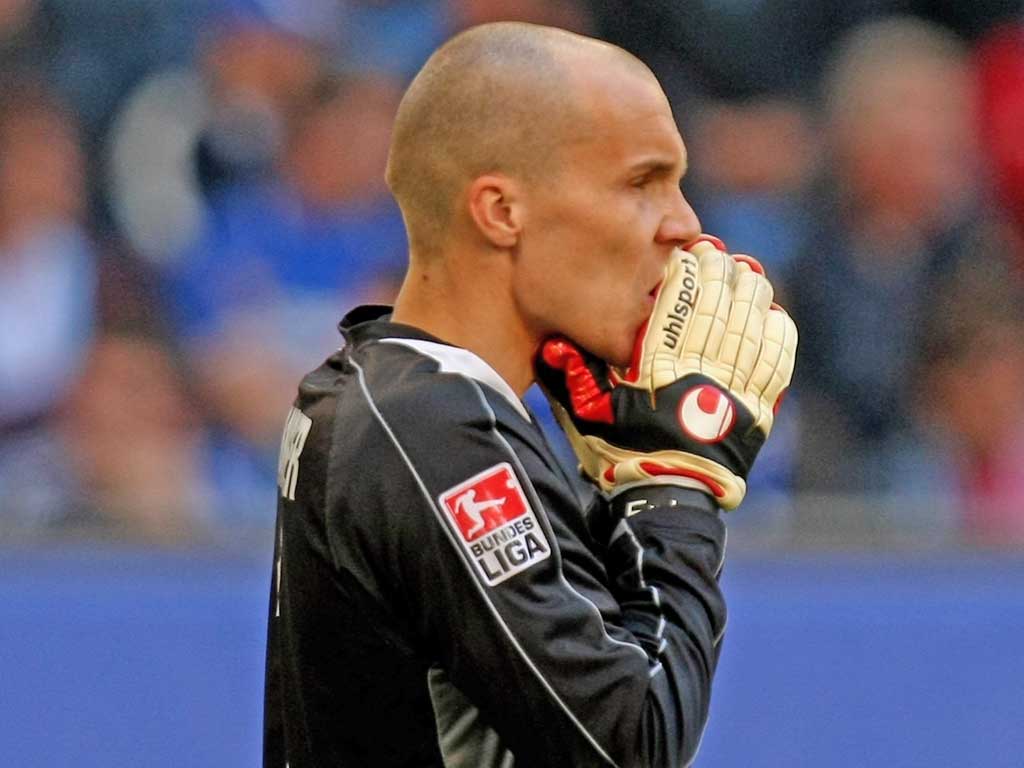Moving biography of keeper Robert Enke raises the bar at the British Sports Book Awards
Genre of football writing grows in credibility with crowning of A Life Too Short as book of the year

When Nick Hornby began to chart his life's obsession with Arsenal Football Club two decades ago neither he, nor his fortunate publisher, could have had any idea of the phenomenon the memoir would launch. Fever Pitch, became a play, a film, and the progenitor of dozens of similar heartfelt paeans to clubs all the way from Bromley to Manchester United.
Most were pale pastiches of the original but enough good ones were written, and sold, to demonstrate that there was a market for well-crafted books about football, and authors capable of producing them. Football writing, previously very much a poor relation to cricket writing, had become respectable, and financially viable.
Sports books in general also gained a wider audience and, while there are still too many banal autobiographies churned out, the field is now a valued part of the publishing industry. Proof of that came last night when the British Sports Book Awards celebrated their 10th anniversary with a black tie dinner at The Savoy, at which Hornby received a special award to mark his outstanding contribution to the genre.
As chairman of the panel that selected the football book, the first problem to contend with was which to omit from the shortlist. That Jonathan Wilson, a previous winner, failed to make the cut with his detailed biography of Brian Clough, Nobody Ever Says Thank You, likewise Dave Roberts' whimsical 32 Programmes, illustrated the variety and depth of football writing.
The shortlist included two poignant autobiographies, a pair of well-researched studies into, respectively, Scottish managers and the Premier League, plus a quirky, evocative trip down memory lane. All come recommended but the clear winner, with top marks from five of the six judges, was Ronald Reng's moving biography of the tragic Robert Enke (right), A Life Too Short (Yellow Jersey). He was the German goalkeeper who killed himself while in the throes of depression in 2009.
Though beautifully written, even in translation, this is not an easy read. There are often funny moments, and many tender ones, but it is overwhelmingly sad, not least because the reader knows the ending in advance so even the happy reminiscences have a doomed air about them. Reng, a journalist and an amateur goalkeeper himself, knew Enke and his family well – they became good friends while both were working in Barcelona. But he was as powerless as everyone else to resolve the illness that ate away at a man who seemed to have the world at his feet.
Five other books were shortlisted:
Got, Not Got (Derek Hammond & Gary Silke, Pitch). Subbuteo, pools coupons, Ernie Hunt's drop-kick, Shoot!, league ladders, "The Manageress", bubblegum cards... it's all here in this affectionate memory-jerking compendium of football's good old, bad old days.
I'm not really here (Paul Lake, Century). Lake was destined for greatness, then his knee went. The Manchester City of 1990 was not the club of 2012 and inadequate treatment forced his retirement. Lake unsparingly recalls the ordeal before coming to terms, up to a point, with fate.
The Management (Grant/Robertson, Berlinn). Scottish managers have played a significant part in the English game since the 19th century. Interviewing Messrs Ferguson, Moyes and McLeish among others this book examines the how and the why.
The Smell of Football (Mick Rathbone, Vision Sports Publishing). Player, physio, manager, Rathbone did them all. Funny and honest , especially of his inability to pass to boyhood hero Trevor Francis, Rathbone recalls a footballer's life before Premier League glitz.
There's a Golden Sky (Ian Ridley,Wisden). Subtitled 'How twenty years of the Premier League has changed football forever', Ridley analyses the development of the competition and its impact, benign and malign, on all levels.
Subscribe to Independent Premium to bookmark this article
Want to bookmark your favourite articles and stories to read or reference later? Start your Independent Premium subscription today.

Join our commenting forum
Join thought-provoking conversations, follow other Independent readers and see their replies
Comments